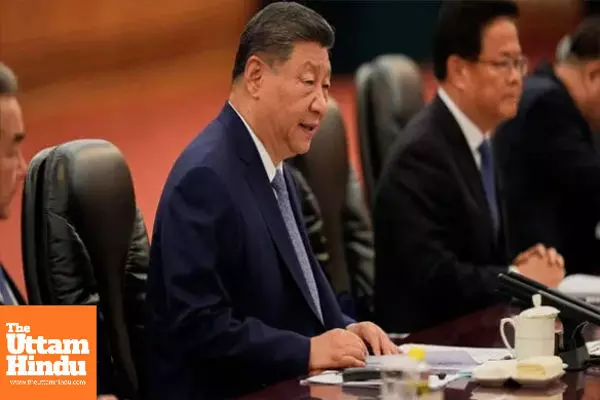
Geneva (The Uttam Hindu): India’s modern economy is among the fastest-growing in the world today. From agriculture to electric vehicles (EVs), the country is moving steadily toward self-reliance. However, this rapid progress under the ‘Make in India’ initiative seems to have unsettled China. Beijing has now filed a complaint against India at the World Trade Organization (WTO), accusing New Delhi of violating global trade regulations through its EV and battery subsidy schemes.
China’s Allegations Against India
China has claimed that India’s EV and battery subsidy programs favor domestic manufacturers over imported products, thereby breaching international trade commitments. According to Beijing, Chinese automakers looking to enter India’s massive EV market are being unfairly excluded due to these policies.
As per a WTO communication letter, China has sought consultations under the organization’s Dispute Settlement Mechanism. The complaint mainly targets three Indian programs the Production-Linked Incentive (PLI) Scheme for Advanced Chemistry Cell (ACC) battery storage, the PLI scheme for the automobile and auto component sector, and another policy promoting electric passenger car manufacturing.
Violation of Trade Agreements, Says China
Beijing argues that India’s measures impose eligibility and incentive distribution conditions favoring local products, which discriminates against Chinese goods. It claims these restrictions violate India’s obligations under multiple international agreements, including the Agreement on Subsidies and Countervailing Measures (SCM), the General Agreement on Tariffs and Trade (GATT) 1994, and the Agreement on Trade-Related Investment Measures (TRIMS).
According to the WTO filing, these Indian measures “nullify or impair” the benefits China is entitled to under global trade rules.
India’s Push for Self-Reliance
India’s incentive schemes aim to reduce dependence on imports and promote local manufacturing of EVs and batteries. The PLI-ACC scheme, launched in May 2021, includes an outlay of ₹18,100 crore to develop 50 GWh of domestic battery capacity. Similarly, the auto-focused PLI scheme, approved in September 2021 with a cost of ₹25,938 crore, is designed to boost local automotive technology and create jobs.
Trade Context
The WTO complaint comes at a time when Chinese EV makers like BYD are already facing heavy tariffs — up to 27% in the European Union. Meanwhile, India’s exports to China fell by 14.5% in 2024–25, while imports from China rose by 11.5%, pushing India’s trade deficit with Beijing to a record $99.2 billion.
